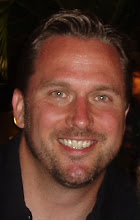Jeffery Sachs is the Director of the Earth Institute at Columbia University, and a special advisor to the UN. He’s also the author of the powerful book, The End of Poverty: Economic Possibilities for Our Time, and the economist guru behind much of the singer Bono’s work in the developing world. In fact, Bono wrote the forward for The End of Poverty. I’ve been diving into the book as I prepare for some meetings in Europe in the coming month and am taken with its breadth and boldness.
Many of the points that Sachs make come from data you may have seen in other places. The way he makes the case, however, is unique. While the data may be bleak, he is not a defeatist. With over a billion of the 6 billion people on this planet living in extreme poverty—literally a cultural or conditional hiccup away from disaster—it is not surprising that more than 20,000 people a day die of completely preventable diseases (e.g., malaria, aids, dysentery). Most of this poverty is found in parts of Africa, Asia, and Latin America—however, there are pockets elsewhere around the world as well. He does a good job of pointing out that the growing divide between have and have not is immoral, unnecessary, and really unique to the last 220 years. Before then, most people on this planet lived at or around the same standard of living. The industrial revolution, geography, and a host of other factors began the poverty split in earnest. Extreme poverty, you see, is not explained away by the convenient “pull yourself up by your bootstrap” rhetoric—you need boots for that. The challenges have more to do with infrastructure (political, physical, and cultural), health systems, and education. This “holy trinity” of development is a starting point for understanding the plight of those trapped in extreme poverty.
The good news is that the knowledge revolution we are living through today holds the promise of helping address many of these issues and turn the situation around. However, we have to do the hard work of educating people about a situation that many would rather forget or ignore. We also have to resist the temptation to explain it away because we don’t want to back the hard work necessary to bring world economic bodies and developed nations together in a strategic way. Yes, we have to care enough to work together with other nations to make a dent in this problem. And yes, there is “tough love” for the countries in distress. However, we have to be careful in the latter approach. As I like to say, throwing a drowning man a self-help book means he soon won’t have a self to help. Most of men, women, and children in extreme poverty are drowning in it.
Sachs outlines the exciting truth that we have the tools at our disposal to end extreme poverty in our generation. Not surprisingly, education will be essential on many fronts. We need to educate our students and communities and leaders about the real challenges of poverty to help generate the support necessary to make a difference. We need to educate a new breed of economists and development specialists with true “clinical development” skills to address the key issues that drive extreme poverty. Finally, we need to help stand up educational systems for these areas to create a new community of learners supporting their countries joining a community of nations as happy and healthy partners.
Take the time to pick up the book and learn more about the topic. The read definitely helps put poverty in perspective.
Friday, April 07, 2006
Subscribe to:
Post Comments (Atom)

No comments:
Post a Comment